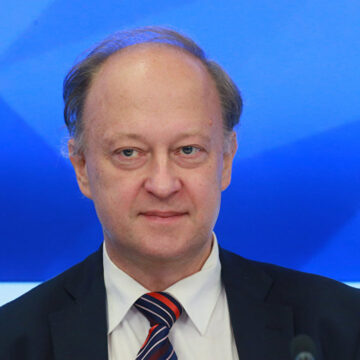The main topic touched upon by experts was the future of the global economy and trade in the context of the United States’ protectionist course. As Fyodor Lukyanov, Research Director of the Valdai Discussion Club, noted, the US will continue to set the tone for international economics, and other countries will not be able to remain in the current paradigm.
The G20 summit, which was created to demonstrate unity in face of the 2008 financial crisis and to counteract protectionist rhetoric, was divided for the first time because the source of protectionist rhetoric, for the first time, was the United States. “The level of confusion that was observed is understandable: the thing that everyone met to counteract initially came from the inside,” Lukyanov said.
According to Andrey Kortunov, Director General of the Russian International Affairs Council, the summit showed the existence of a new dividing line between the members of the G20. In the past, the developed G7 economies were in favor of preserving the status quo, while developing countries were in favor of protectionism and a bigger place under the sun. However, today, the US has taken the position of justifying protectionism, while other countries began to favor liberalizing trade.
“One can argue how much China really adheres to liberal principles, but the vector of the movement cannot be denied, and the Berlin-Beijing axis is being formed before our eyes, which seemed unimaginable a few years ago,” Kortunov said.
The most serious regional issue hanging over the G20 meeting, according to the experts, was the test launch of a new ballistic missile in North Korea. Lukyanov noted that the new president of South Korea, Moon Jae-in, continues to pursue a policy of “red lines,” despite restarting the rhetoric of the sunshine policy. However, no one has an idea of what the crossing of a “red line” and the US military reaction would look like.
Kortunov said that in the opinion of Russian experts, who are more aware of the situation in North Korea than experts from other countries, the US greatly overestimates North Korea’s progress on ballistic missiles and nuclear weapons. According to the experts, there are still 5-6 years before the nation will become a nuclear threat to its neighbors and the United States.
The expert also warned about the possible consequences of military actions in the region. “In the event of military action, the split will go along the line of Russia, China and North Korea against the United States, South Korea and Japan. China and Russia will have no choice but to […] close their eyes to some of the sins of the North Korean regime,” Kortunov said.
Experts also discussed the visit of Donald Trump to Poland, which, as Lukyanov noted, showed a change in the US approach to foreign policy, which does not benefit Russia. Kortunov added that the approach in which Trump offers European countries security in exchange for the purchase of American gas and weapons, puts Europe in a difficult situation.
The experts saw the main event of the summit, the meeting between the presidents of Russia and the United States, as positive. Kortunov noted that the US remains in a deep political crisis that will not end before the mid-term elections to Congress in 2018, which will either secure Trump’s power or lead to his impeachment.
Lukyanov also stressed the importance of the topic of cybersecurity, which was touched upon during the meeting of the two leaders. The degree of interest in cybersecurity among the American elite and society is extremely high. The only question is what exactly fuels this interest: the search for adequate solutions to cybercrime or the speculation and use of this topic to push forward the US’ internal political crisis. In any case, according to Lukyanov, clarification of the issue of recent cyber incidents is currently not beneficial for either side of the American establishment.
The only real outcome of the talks between Vladimir Putin and Donald Trump was a new agreement on de-escalation in Syria. Kortunov noted that this agreement is not so much a concession to the United States, as it is a ‘payment’ for the inclusion of Jordan in the negotiation process. Lukyanov added that de-escalation would allow participants in the peace process to freeze the current state of affairs and delineate the areas of responsibility, since the main drivers of the peace process, the military of Russia and the US, understand that a war to the victorious end is impossible for either side.
“To come to a compromise, there has to be recognition that there is a civil war, with forces on both sides that have their own social and political base, and this is why there can be no victory. It is for this reason that it will be difficult to convince Damascus in the necessity of changing this narrative,” Kortunov concluded.











